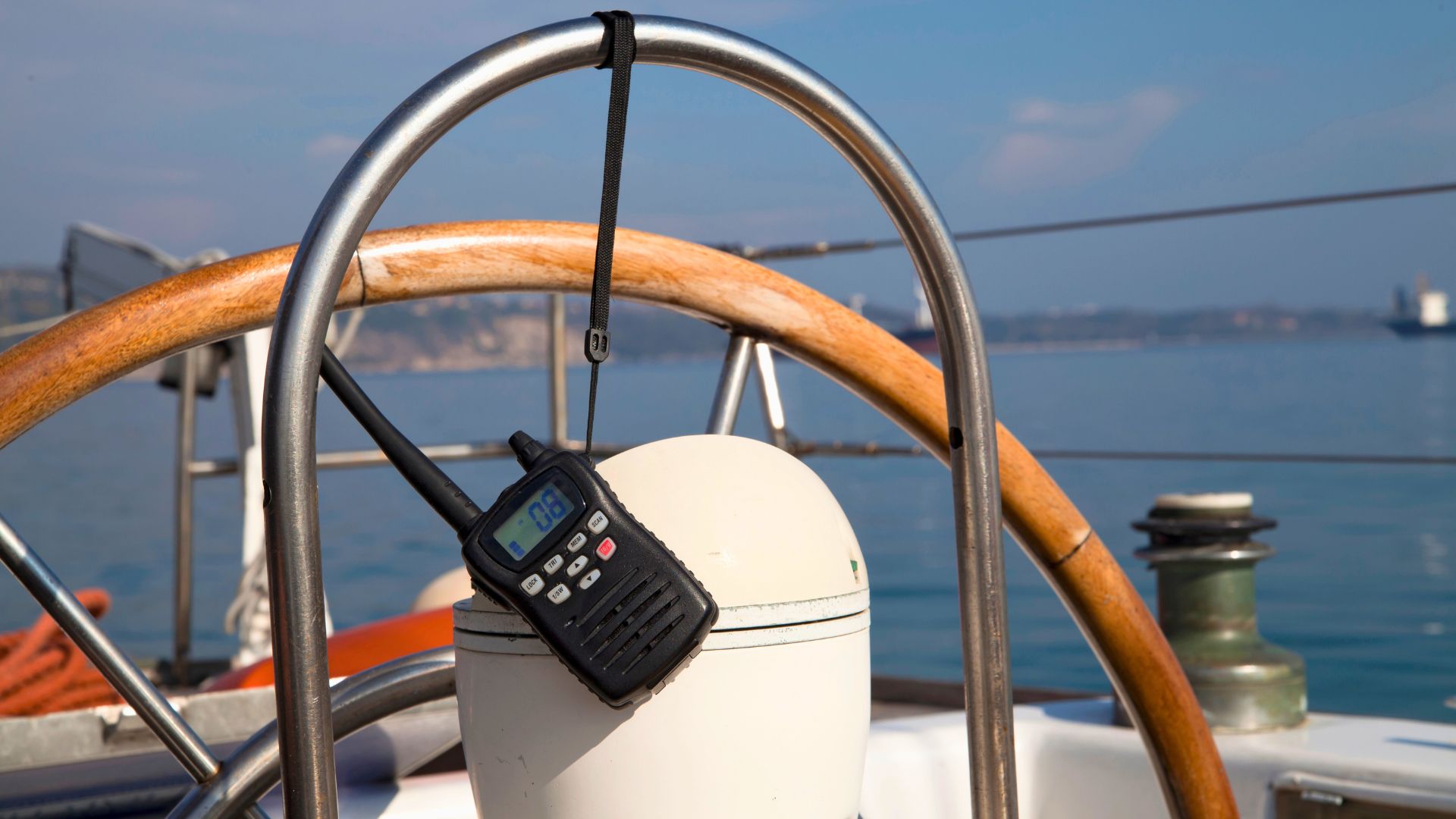Why Marine Radio Matters – And How Not to Panic During Your First Call
When you first step on board as a captain or responsible crew member, one of the most intimidating things can be the VHF radio. And you're not alone – for many beginners, this is where doubt kicks in.

"What do I say? Who am I talking to? What if they don’t understand me?" These are perfectly natural questions. But the good news is: marine radio communication isn’t rocket science. It can be learned, practiced – and it’s an essential part of safe sailing.
Close-up of a marine VHF radio – one of the most important safety tools onboard, used for communication and emergency signals.
It’s Not Just Formality – It Can Save Lives
The VHF radio is one of the most important tools for marine communication. It's not only for contacting harbors – it can be critical in an emergency. Whether it’s an engine failure, an injury, or rapidly changing weather conditions, the radio is often the only way to request help quickly and effectively – or to inform nearby boats in time.
Most Beginners Overthink It
Many people believe that using the radio requires some secret language or complex codes. In reality, simplicity and clarity are key. If you speak clearly, understandably, and in the right order, you're already halfway there. The official phrases simply help make your communication structured and easy to follow.
What You Should Know in Advance
- Channel 16 is the emergency and primary communication channel – you must always monitor it.
- When calling a port or another boat, there’s a set order (e.g. name of the station you're calling, your boat name, location, request).
- Don’t worry about making mistakes – everyone was a beginner once. The sailing community is generally helpful and understanding.
- You’ll practice radio use during internationally recognized skipper courses (like the ICC+B), so your first call won’t happen in a real emergency.
Pro Tip: Practice in Advance – Create Call Templates
As with any skill, what you’ve practiced won’t fail you under pressure. Write down templates for port check-ins or mooring requests. Repeat them aloud – even multiple times. That way, when you really need to speak, it’s not panic, but muscle memory that takes over.
In Summary:
Radio communication is not a monster – it’s a tool. Your tool for staying safe and confident at sea. The more you practice, the more natural it becomes – and one day you’ll realize this used to be your biggest fear. And if you choose a course that pays special attention to this skill (like ours), the practical side won’t catch you off guard either.
Got questions about our courses or how to prepare for your first radio call? Write to us at hello@sidronautika.com
🌊 Sidro Nautika – solid foundations, real-world experience from day one.